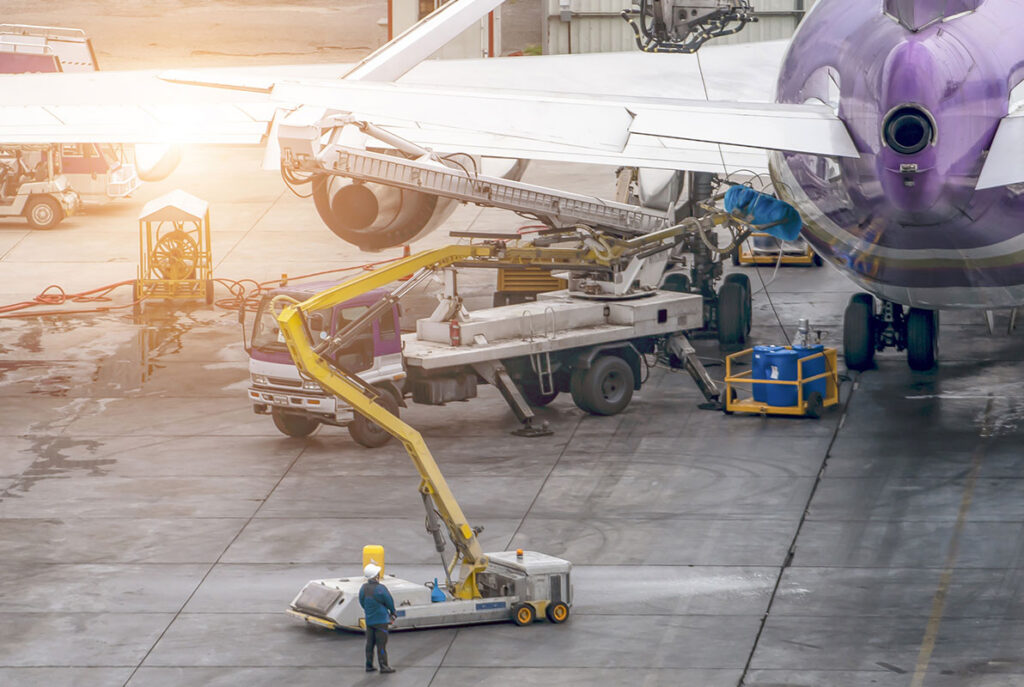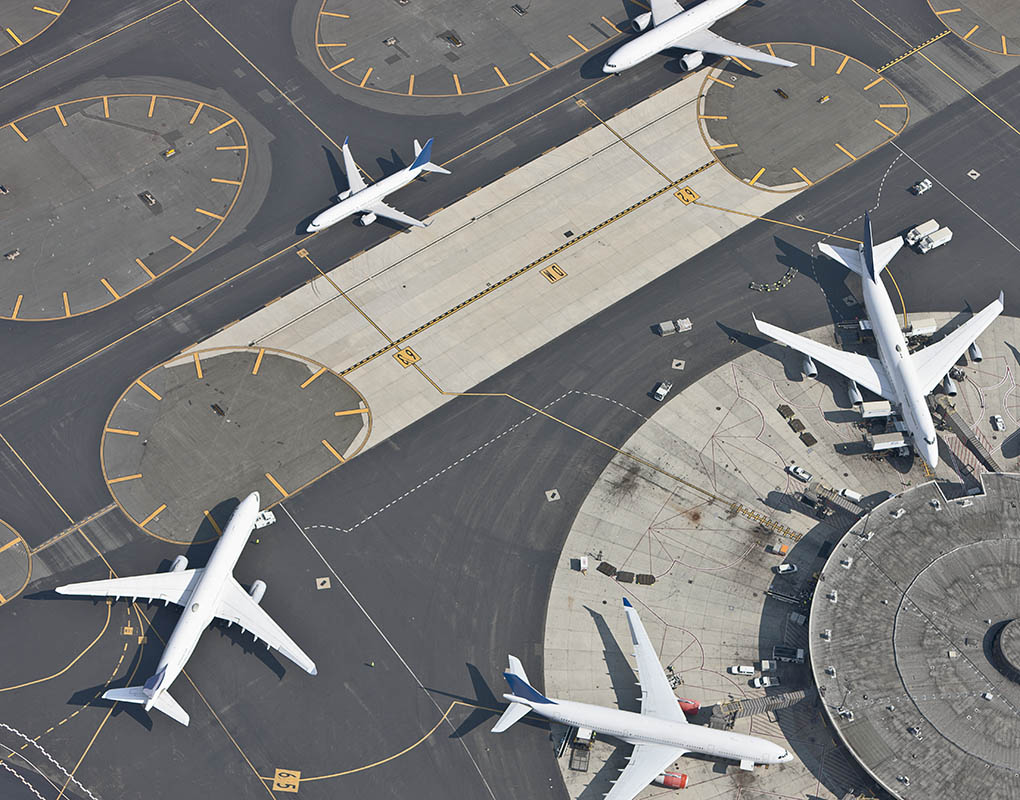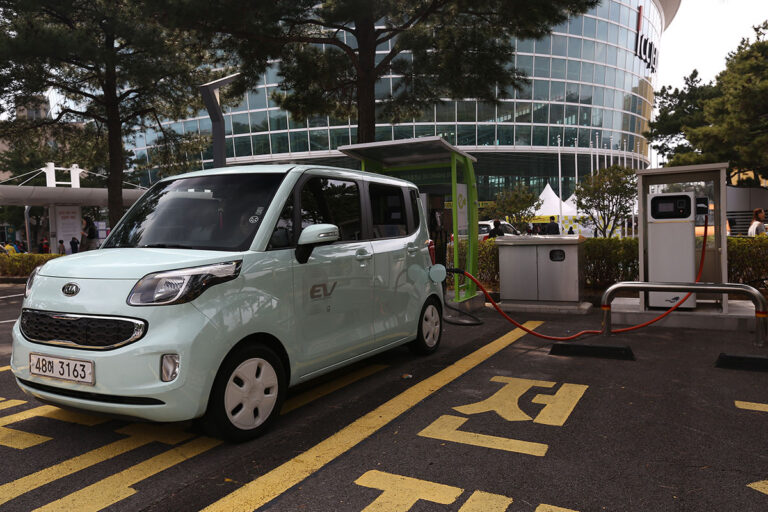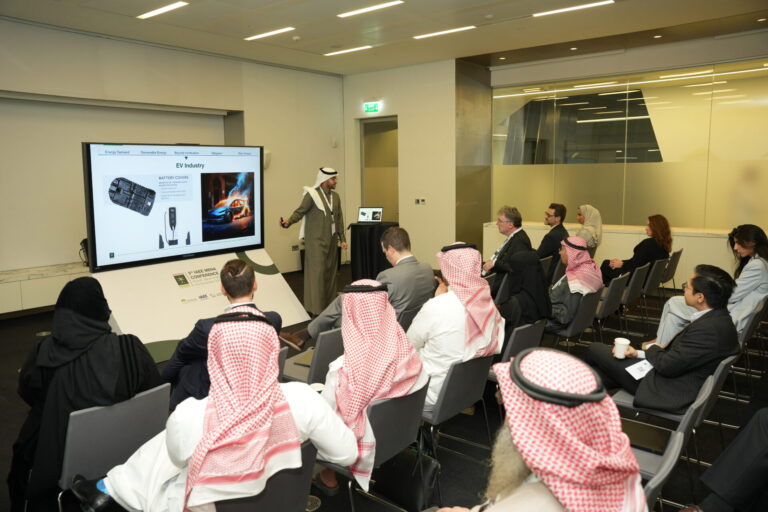Reducing aviation’s significant carbon footprint poses huge technical and economic challenges. An evaluation of aviation energy policy and economic research priorities was recently carried out by Rubal Dua and fellow KAPSARC researcher Andres Felipe Gomez.
The work forms part of a larger KAPSARC project to analyse energy policy research priorities, which Dua refers to as ‘questioning the questions’. The project is designed to identify and prioritize the questions that can lead to impactful, policy-relevant research.
“By focusing on the right questions, we hope to drive meaningful research that can provide valuable insights for policymakers and industry stakeholders,” Dua says.
Media reporting
Aviation’s environmental impact is a growing concern. Commercial aviation currently accounts for 2-3% of global greenhouse gas emissions, a figure that could soon increase significantly as post-pandemic air travel continues to expand, and as other sectors decarbonize.
As a starting point for their study, Dua and Guzman reviewed the emerging aviation climate action topics that were reported recently in the media. News reporting is often an under-appreciated and under-utilized resource for academic research, Dua says. “Some researchers see media discourse as biased and something to be kept separate from academic discourse,” he says. But media reports frequently highlight emerging economic, policy, and sustainability issues before they appear in the academic literature, he notes.
“Some researchers see media discourse as biased and something to be kept separate from academic discourse.” Rubal Dua
The team analyzed news media reports that focused on air travel and identified12 topical themes associated with aviation climate action. Within each theme, they formulated a range of practical policy and economic research questions that would be required to address the issues raised by the news reports. These research questions were cross-checked against the existing academic literature to assess how well they were already being addressed. They were then evaluated by a panel of aviation industry experts.
Pathways to net zero
The 12 themes that the team identified included topics such as industry’s strategies and challenges; carbon offsetting versus emissions reduction technologies; the EU’s aviation policies and strategies, and its impact on EU airlines; the role of government incentives; and corporate climate action and the future of business travel.
“The set of research questions that we considered to be the most significant, based on our expert survey, emerged from the theme concerned with the industry’s strategies and challenges,” Dua says. Many news articles within this theme had reported on airline pledges to attain net-zero carbon emissions by 2050, and on the challenges associated with attaining these goals given the current lack of a sustainable and economic drop-in replacement for fossil-derived aviation fuel.
The team identified various strands of academic research already underway within this theme, such as research to understand the pathways required for airlines to successfully reach net zero by 2050.
“However, we also identified a number of potential research challenges that merit further examination,” Dua says. “One of the critical research priorities that our work highlighted was to conduct a cost analysis of airlines’ net zero by 2050 commitments.” A further key research question that the team identified was to assess the economic and environmental viability of carbon emission reduction, offsetting and removal.
A third critical question requiring research attention within this theme concerned the development of frameworks for equitable responsibility allocation between developed and developing country airlines. The team suggested prioritizing research on international cooperation to support developing countries’ airlines to reduce their emissions, including financial support or technology transfer.

Abate or offset?
Media outlets frequently reported on the economics of airlines investing in carbon offsets rather than in emissions reduction measures. These news reports highlight that the money airlines spend on offsets effectively diverts funding away from initiatives to directly reduce airlines’ emissions.
“Our work highlights that evaluating the effectiveness and opportunity cost of carbon offsetting compared to direct reduction measures is a critical research topic,” Guzman says. Analysis of this topic should consider the environmental as well as the economic implications of this decision, he adds.
A further factor facing the airline industry centres on government policy aimed at curbing the aviation industry’s carbon emissions. The EU has been an early mover in this space, with aviation carbon emissions falling under the remit of the EU emissions trading scheme (ETS). “The impact of EU aviation policies on airfares, demand and EU airline competitiveness are important questions to be addressed,” Guzman says. Critically, studying how effectively the ETS has reduced emissions from air travel would also inform wider regulatory approaches to aviation decarbonization in the EU and beyond.
Formulating a research agenda that analyses in an inter-connected manner the broad range of sustainability pathway challenges faced by the aviation industry and its regulators, rather than considering each issue in isolation, is a key strength of the KAPSARC analysis, Dua says.
The team’s innovative approach in using media reports to identify the current and emerging trends in aviation climate action, helped to ensure that the relevant issues were comprehensively catalogued and assessed. Regularly revisiting aviation news reporting to keep the aviation climate action research agenda on track would be an important area of future work, Dua notes.
Reference
Dua, R.; Guzman, A.F, A perspective on emerging energy policy and economic research agenda for enabling aviation climate action. Energy Research & Social Science 117, 103725, 2024. | Article




